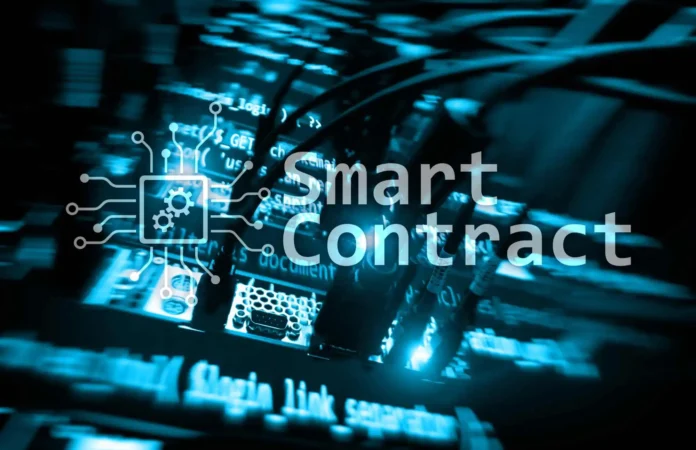In the ever-evolving landscape of finance and technology, smart contracts have emerged as a transformative tool with significant implications for traditional legal frameworks. These self-executing contracts, powered by blockchain technology, offer a new way to facilitate and enforce agreements without the need for intermediaries. While smart contracts promise increased efficiency and transparency, they also raise questions about their legal enforceability and the role of traditional legal mechanisms in the digital age. This article explores the impact of smart contracts on traditional legal frameworks and discusses the implications for investors navigating this evolving terrain. As we delve into this topic, it’s essential to consider the role of smart contracts as a pivotal link between technology and law.
The Rise of Smart Contracts
Smart contracts, pioneered by platforms like Ethereum, are digital agreements programmed to automatically execute and enforce the terms of a contract without the need for intermediaries. Utilizing blockchain technology, these contracts are immutable, transparent, and tamper-proof, offering parties a level of security and trust previously unseen in traditional contracts. By eliminating the need for intermediaries such as lawyers, banks, or brokers, smart contracts promise to streamline processes, reduce costs, and mitigate the risk of fraud.
Enhanced Efficiency and Transparency
One of the key benefits of smart contracts is their ability to enhance efficiency and transparency in transactions. Traditional contracts often involve complex processes, including negotiations, drafting, execution, and enforcement, which can be time-consuming and costly. Smart contracts automate these processes, reducing the need for manual intervention and minimizing the potential for human error. Additionally, the transparent nature of blockchain technology ensures that all parties have access to the same information, promoting trust and accountability in transactions.
Legal Enforceability of Smart Contracts
While smart contracts offer numerous advantages, their legal enforceability remains a subject of debate. Traditional legal frameworks are built on the principles of interpretation, enforcement, and dispute resolution, which may not easily translate to the digital realm. Unlike traditional contracts, smart contracts are coded using programming languages, which raises questions about their interpretation and enforceability in the event of disputes or unforeseen circumstances. Moreover, the decentralized nature of blockchain technology presents challenges in identifying responsible parties and enforcing judgments.
Navigating Regulatory Challenges
The rapid proliferation of smart contracts has caught the attention of regulators worldwide, who are grappling with the need to adapt existing legal frameworks to accommodate this emerging technology. While some jurisdictions have embraced blockchain innovation and enacted supportive regulations, others have taken a more cautious approach, citing concerns about investor protection, market integrity, and systemic risk. Investors operating in this uncertain regulatory environment must navigate a complex landscape of legal compliance and regulatory uncertainty.
Implications for Investors
For investors, the rise of smart contracts presents both opportunities and challenges. On one hand, smart contracts offer the potential to streamline processes, reduce costs, and enhance transparency in transactions. Investors can leverage this technology to automate routine tasks, execute agreements more efficiently, and access new investment opportunities in decentralized finance (DeFi) platforms. On the other hand, the legal uncertainties surrounding smart contracts pose risks for investors, including potential disputes, regulatory scrutiny, and financial losses.
Mitigating Risks and Maximizing Opportunities
In light of these challenges, investors must take proactive steps to mitigate risks and maximize opportunities in the era of smart contracts. This includes conducting thorough due diligence on smart contract platforms and ensuring compliance with relevant regulations. Investors should also seek legal advice to understand the implications of using smart contracts in their transactions and develop contingency plans to address potential disputes or regulatory issues. By staying informed and adopting best practices, investors can navigate the evolving landscape of smart contracts with confidence and capitalize on the benefits they offer.
Conclusion
Smart contracts represent a paradigm shift in the way agreements are made, executed, and enforced in the digital age. While these self-executing contracts offer numerous advantages, including increased efficiency, transparency, and security, they also pose challenges for traditional legal frameworks and regulatory authorities. For investors, navigating this evolving landscape requires a deep understanding of the technology, its legal implications, and the regulatory environment. By embracing best practices and staying informed, investors can position themselves to capitalize on the opportunities presented by smart contracts while effectively managing associated risks.

